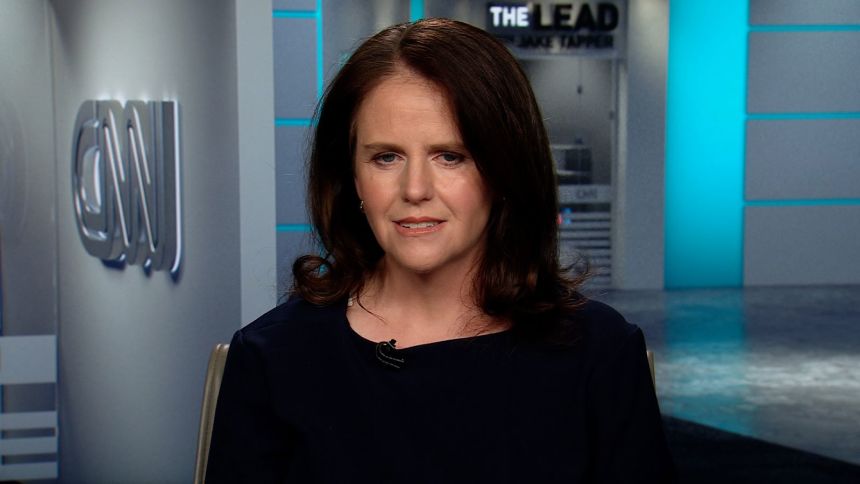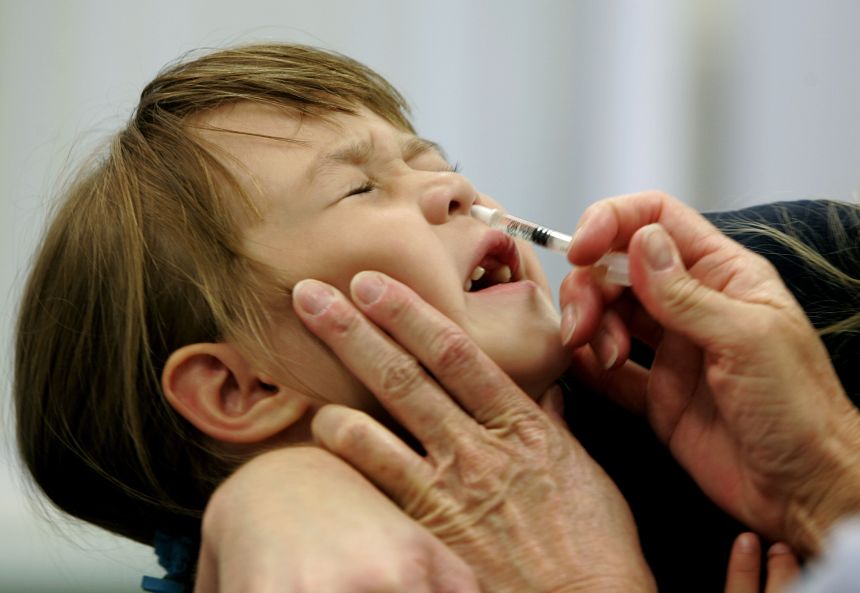The US Centers for Disease Control and Prevention’s Advisory Committee on Immunization Practices, or ACIP, will gather this week for its second regular meeting of the year, but this won’t be a typical meeting.
Two weeks ago, US Health and Human Services Secretary Robert F. Kennedy Jr., who has a history of vaccine skepticism, upended the independent advisory panel and its planned agenda. All 17 of the previous members were dismissed, and eight new ones were added. Presentation topics central to anti-vaccine activists’ arguments were placed on the schedule, despite studies and data about safety.
Ahead of Wednesday’s meeting, one of the eight new members, Dr. Michael Ross, withdrew during the required financial holdings review, HHS spokesman Andrew Nixon said.
The swift changes — and concerns that the committee lacks expertise and has potential conflicts of interest — are so concerning that some public health experts and officials said the country risks shifting into “vaccine chaos,” with different vaccine recommendations at work, inconsistent access and uncertain insurance coverage.
“This week’s meeting of the Advisory Committee on Immunization Practices (ACIP) is likely to mark its end – for now – as a vaccine advisory body,” said the staff and advisers of the Vaccine Integrity Project, a group that’s seeking to preserve access to vaccines in the event that the government throttles it, in a viewpoint posted Monday.
Dr. Peter Hotez, a pediatrician and co-director of the Texas Children’s Hospital Center for Vaccine Development, said that in its new form, “the ACIP is devoid of any meaningful expertise in vaccines or infectious diseases. It is organized to pursue a pseudoscience agenda. It’s a waste of taxpayer dollars that should be dissolved.”
It’s a startling shift for a group that has been meeting for more than 60 years, and whose recommendations are so trusted that they’re often written into state laws.
ACIP has played a pivotal role in how vaccines are used in the United States. Like an orchestra conductor, it keeps the vaccine delivery system playing well together: directing doctors and other providers on how to use vaccines, telling insurance companies when to cover vaccines, giving states guidance on which vaccines to purchase, helping cities and counties decide which vaccines are needed for school enrollment and cueing the federal government on which vaccines to purchase for low-income children.
“Those recommendations are made in harmony with the input of a lot of consultants from professional groups so that we all agree then on what the recommendations are,” said Dr. William Schaffner, an infectious disease expert at Vanderbilt University in Nashville who has been participating in ACIP meetings for 40 years, both as a voting member and as a liaison member.
“Then, those recommendations basically become the standard of practice,” Schaffner said. “So that makes the delivery of vaccines very smoothly functioning. Everybody knows who ought to get the vaccines and then when they get them.”
With new uncertainty around ACIP, several groups, including the Vaccine Integrity Project, have taken steps to convene and shape evidence-based recommendations, even without such guidance from the CDC’s advisers.
Some states — such as Maine, which this year celebrated record-high immunization rates in school-age kids — have also begun to strip vaccine access laws of references to ACIP recommendations.
But experts are worried that a cacophony of recommendations, however well-meaning, may be confusing to insurers, health care providers and the public.
“We would have certainly, for a period of time, vaccine chaos,” Schaffner said, “Because it would be uncertain for the providers and uncertain for the public who would be receiving the vaccines, whether your children, adolescents or adults, what was covered and what was recommended.”
Plus, these outside recommendations wouldn’t have the force of federal law behind them to compel insurance coverage, said Dr. Fiona Havers, a medical epidemiologist and former senior adviser on vaccine policy at the CDC. Havers recently quit over Kennedy’s changes to the committee, saying she no longer had confidence that the data she generated would be viewed objectively or with appropriate scientific rigor.

“If this process continues to completely fall apart and the professional societies like the American Academy of Pediatrics put out their own schedules, that’s fine, and that may be where we’re going,” Havers said. “But I personally would not want to trust my child’s access to vaccines or my elderly parents’ access to vaccines to the goodwill of the insurance companies to follow those recommendations instead of ACIP’s.”
Here’s what to know about the CDC’s vaccine committee ahead of its two-day meeting this week.
ACIP is a group of experts — typically with specialties in pediatrics, infectious diseases, public health or vaccines — who make recommendations to the CDC on the use of vaccines. They tend to come from universities or medical schools. Some have been doctors in private practice. There’s also typically a consumer representative on the panel.
Despite Kennedy’s claims when he removed all 17 previous members of the panel this month, members of the committee are closely scrutinized for conflicts of interest, and any conflicts are publicly disclosed. Members also recuse themselves from a vote if they have a financial interest in its outcome.
As of Tuesday evening, HHS had not posted updated ethics statements or conflicts of interest reports for the new incoming members.
Although the US Food and Drug Administration decides whether immunizations are allowed to be used in the United States, it’s the CDC’s job to recommend how those products should be used. It does so based on recommendations from ACIP.
After a vote, ACIP recommendations are forwarded to the CDC director for approval. The CDC isn’t bound by the committee’s recommendation but ordinarily follows it. The HHS secretary has the final signoff.
The committee typically meets three times a year to vote on the use of vaccines in the US, and more frequently during emergencies like Covid-19, when they met as often as once a week to pore over data from around the world. These meetings, which are public and typically broadcast, can span two or even three days.
Kennedy has accused ACIP of being a “rubber stamp for industry profit-taking agendas,” but the committee hasn’t always recommended the use of vaccines, even when they’ve already gotten approval from the FDA.
After data showed that the FluMist nasal spray vaccine had little to no effectiveness during the 2015-16 flu season, the committee said it shouldn’t be used during the next two flu seasons. FluMist was again recommended during the 2018-19 season after data demonstrated better effectiveness.

In 2023, the first fall and winter season that the RSV vaccine was available for older adults, ACIP recommended it for adults 60 and older with shared decision-making, meaning it was available only after consultation with a health care provider on its risks and benefits. In 2024, ACIP removed the shared clinical decision-making requirement, making it easier to access. The panel recommended that adults 75 and older get one dose of any available RSV vaccine, while adults 60 to 74 needed one only if they were at higher risk of severe RSV infections.
After Kennedy dismissed all 17 ACIP members who were appointed during the Biden administration, he replaced them with eight of his own picks.
There can be up to 19 voting members, according to ACIP’s charter.
Most of the new members have little expertise in infectious diseases or vaccines, and some have served as expert witnesses in vaccine injury cases. One has been associated with a group that exaggerates the rare risks and harms of vaccines while casting doubt on their benefits. Another has done studies purporting to show the harms of the Covid-19 vaccines, reporting conclusions that run counter to most other evidence on the safety and effectiveness of these shots. Independent fact checks of these studies suggest that their conclusions may be based on flawed methods.
Aside from voting members, there are two more tiers of membership.
There are six “ex-officio” members from government health agencies such as the Centers for Medicare and Medicaid Services and the FDA. The meeting typically hears from these members about policy questions they can help answer. Ex-officio members don’t typically vote, but they can do so if there aren’t enough voting members to have a quorum – which is defined by the Federal Advisory Committee Act as a majority, or one more than half.
The last tier of membership includes the liaison members: non-voting members from the 30 nonprofits and professional groups that are spelled out in the committee’s charter. Liaison members may be added by the HHS secretary. These members often speak up during discussions and after voting has taken place.
As of Monday night, many of the liaison members had not been sent a video link to participate in the meeting, Schaffner said, when normally they would have gotten that already.
Voting members can serve up to four-year terms. They are considered special government employees and subject to federal conflict of interest safeguards. They aren’t paid for their service but are compensated for their travel to and from meetings and for their meals.
In addition to regular meetings, members of ACIP convene outside of public meetings in “work groups” that focus on a specific vaccine or disease of interest. These groups must include at least two voting members but may also consist of liaison and ex-officio members as well as outside experts. They often spend months making deep dives into medical research and present their findings to the voting members of the committee at each meeting.
The working groups often look at vaccines that are nearing FDA approval, to be sure they are ready to issue advice shortly after that agency makes the determination that a vaccine is safe and effective.
ACIP’s recommendations are used in several ways:
To guide patient care: ACIP sets what’s known as the vaccine schedule, a table that charts out which inoculations should be given by what ages. Many states use these vaccines schedules to set their own policies for school enrollment, for example.
To determine insurance coverage: Under the Affordable Care Act, when ACIP recommends a vaccine, it has to be covered by most insurance plans with no co-pays to patients.
To determine which vaccines are purchased for the Vaccines for Children (VFC) program: The CDC’s Vaccines for Children program bulk purchases vaccines that are then distributed to states, which, in turn, distribute them to doctor’s offices. It provides vaccines at no cost to children whose families wouldn’t otherwise be able to afford the shots. Roughly half of children in the US get their vaccines through the VFC.
To determine coverage by the Vaccine Injury Compensation Program: When ACIP recommends a vaccine for pregnant women and children, it is automatically added to the list of vaccines covered by the Vaccine Injury Compensation Program. As with many medical treatments, the benefits of vaccines come with rare risks. These risks, or adverse events, are maintained on a list by the program, which compensates people who’ve experienced them and can prove they are linked to a covered vaccine. Because the program shields vaccine manufacturers from lawsuits, it has come under fire from Kennedy, who has said that people should be able to file suit in court for their injuries.
